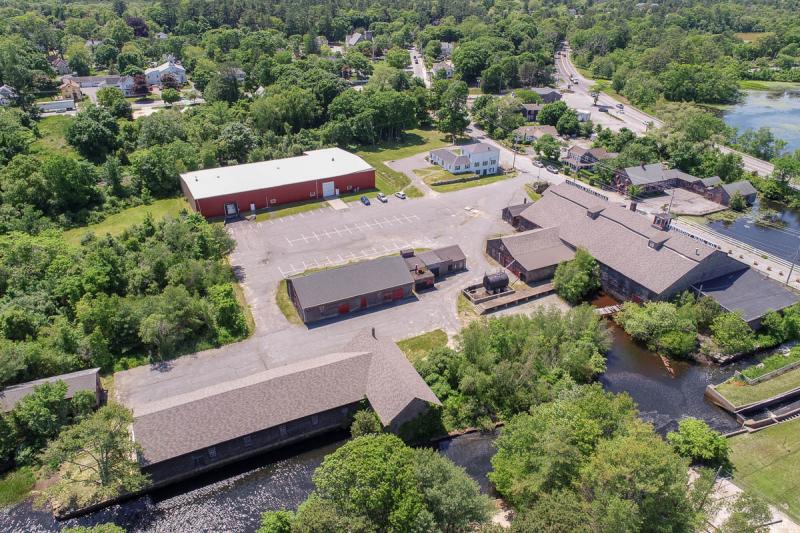Wareham officials: Business interest high for historic factory site
Many were skeptical when in 2004 the town purchased the Tremont Nail Factory complex, a 7.2-acre site on Elm Street where nails were manufactured for 300 years.
“I should know,” said Peter Teitelbaum, a selectman and chair of the Redevelopment Authority Board. “I was one of them.”
Questions on the cost of rehabilitating the buildings and possible contamination at the site from years of industrial use dogged potential plans to transform the site into a commercial and cultural destination.
Now, there’s a variety of businesses expressing interest in opening at the site, including a marijuana processor with an international presence, a distillery and a pottery shop. Town officials are hopeful the complex will eventually become a vibrant destination.
But first they’re going to ask voters at a Special Town Meeting to approve zoning changes to allow for light manufacturing and amend the town’s recently adopted marijuana bylaw. That would pave the way for Organa Brands – a Colorado-based marijuana company that did $100 million in sales in 2016 – to open a processing facility at the site.
Planning & Community Development Director Ken Buckland said the zoning changes are necessary to make the site economically attractive to a variety of businesses.
Regarding the distillery, Buckland said developers are still performing due diligence on the site.
“The basic concept is to meet the goals of our vision plan, get some funds coming in to make improvements to the site and create something that will make the town proud,” said Buckland.
Developed over the past few years, the vision plan has short and long term phases. In the short term, officials are looking to attract businesses to fund further improvements. Looking years into the future, officials may eventually want to build housing on the site.
By allowing Organa Brands to open by changing the zoning, the company would be able to process up to 12 tons of marijuana a year into products such as edibles. Marijuana would not be grown or sold at the site. The company is eyeing a 15,000-square foot building in the complex, a warehouse built in the 1970s.
Money from leasing, to be put in a special account solely for the upkeep of the property, would be used to rehabilitate the historic buildings on the site, said Buckland.
Teitelbaum noted that Selectmen would also have the authority to charge the company an annual licensing fee, which could generate hundreds of thousands of dollars. The town is allowed to charge the fee due to state marijuana laws. License fee funds could be spent for a variety of municipal purposes, he said.
Teitelbaum and Buckland noted they’ve heard complaints from residents concerned about traffic and the smell from the marijuana facility.
Teitelbaum said he was confident any problems could be mitigated during contract negotiations.
“They’ve opened facilities in California, which has the strictest air quality standards in the country,” said Teitelbaum. “The technology is there to remove odors and we can impose conditions on them by way of a contract.”
Another potential problem, traffic, should also not be a major concern. Teitelbaum noted that deliveries would occur twice a day via vans.
“There isn’t going to be eighteen wheelers going in and out of the site,” said Teitelbaum.
Buckland said the future of the site depends on attracting businesses soon so future improvements can be made. The town stands to collect approximately $1 million over a five year period, via a mix of rent and taxes.
One lingering question for officials has been the cost of environmental cleanup at the site.
In 2016, soil and groundwater was found to be contaminated with oil and other hazardous materials, according to the Massachusetts Department of Environmental Protection.
Petroleum compounds, heavy metals, zinc and other materials were found at levels that exceed those set by the Massachusetts Oil and Hazardous Release Prevention Response Act.
The town is being ordered to cleanup the site and Teitelebaum said that would cost an estimated $1.3 million. That number is manageable, according to Buckland. He said officials will explore options for funding the cleanup.
Both said the marijuana facility’s developers are eager to open as soon as possible. However, that will be up to voters at Special Town Meeting, which is yet to be scheduled.













